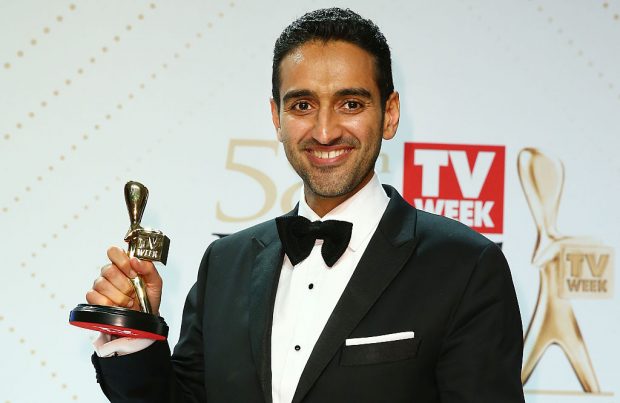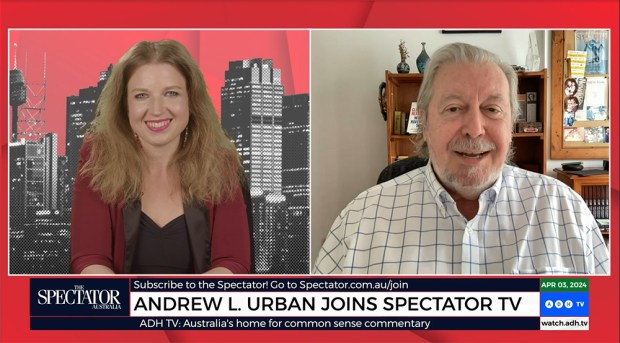 It has been a dismal year for the commanders and foot soldiers in Australia’s war against so-called hate speech. In several recent ground operations, the massed forces of contemporary censorship and conformism have been repulsed by the exertions of popular resistance movements.
It has been a dismal year for the commanders and foot soldiers in Australia’s war against so-called hate speech. In several recent ground operations, the massed forces of contemporary censorship and conformism have been repulsed by the exertions of popular resistance movements.
The censors’ equivalent of the Big Bertha howitzer – active promotion and enforcement of section 18c of the Commonwealth Racial Discrimination Act – has been misfiring and lobbing ordnance behind the censors’ own lines.
At the state level, an attempt to haul the Catholic Archbishop of Hobart into the local anti-discrimination apparatus to explain himself for having dared to communicate with his flock regarding Catholic teaching on same-sex marriage was abandoned, but not before the kindly prelate was subjected to several months of hate-drenched condemnation.
The only consolation for the 18c herd is that year’s end ushers in the handing out by the Australian Human Rights Commission – its motto “Everyone, everywhere, every day” – of its self-styled “prestigious” human rights awards. The revelry of fortifying public self-congratulation and ancillary merchandising and branding opportunities pays tribute to conspicuous virtuosity in spreading the gospel of diversity in each of eight categories of select persons (individual and corporate) who make their way through the community nomination process.
In 2016, hate speech ideology continued to be replete with post-modern irony. In this observer’s respectful opinion, two examples deserve to be mentioned in despatches: the “All-New” Voltaire Award and the section 18d trope.
It is easy to imagine that the great Frenchman, François-Marie Arouet, better known as Voltaire, would be both cheered and perplexed by the free speech debate in Australia. The cheer would arise from the fact that the religious-like fervour applied to maintain the 18c censorship regime has ensured that a vigorous free speech controversy has become a permanent ingredient of national life.
The resistance forces heaped derision on the substance of the complaint which gave rise to Prior v Queensland University of Technology before and after the Federal Circuit Court summarily dismissed the claim against three undergraduates.
The Race Discrimination Commissioner’s urging of offended indigenous Australians to file complaints with the AHRC against Bill Leak arising from his cartoon highlighted the ease with which 18c can be deployed to attempt to stifle public debate. Unsurprisingly, that urging was followed by the filing of a complaint, and revelation of the sedulous activities of persons who had acted to gather supporting evidence. Then the complainant abandoned the claim. Perhaps the AHRC could add “easy come, easy go” to its motto.
In a display of healthy dissent, elements within the Liberal/National coalition engaged in a row concerning 18c which was followed by the Turnbull government’s announcement on November 8 that it had referred the broader 18c controversy to the Joint Parliamentary Committee on Human Rights for inquiry and report.
The sources of the Great Frenchman’s imaginary puzzlement would include the following. First, before Voltaire had reached 50, he had written a play, Le fanatisme, ou Mahomet le Prophète which is an unflattering depiction of its subject. Nowadays, it seems highly unlikely that any Australian impresario would be emboldened to risk staging a production of that play notwithstanding the fact that in his later years Voltaire appears to have modified his attitude to his subject.
Secondly, Liberty Victoria announced the bestowal of the 2016 Voltaire Award for free speech on the commentator and academic, Waleed Aly. LV supports some tinkering with the incurable obscurantism of the legislative formula “offensive, insulting, humiliating and intimidating”. In that context, the Voltaire Award now celebrates state-backed multiculturalism conformism rather than dissent.
It has been one hell of a year for Mr Aly. He received the Gold Logie Award in May and in mid-June he was front and centre at an Iftar dinner celebrating Ramadan hosted by Prime Minister Turnbull at Kirribilli House.
The glow surrounding that historic event was dimmed somewhat by the early departure of two of the honoured clerical guests one of whom had on an earlier occasion reminded his votaries of the unchangeable scriptural condemnation of the abomination that is homosexuality. Voltaire would have approved pinning the eponymous medal on that gentleman.
Mr Aly, however, is a worthy recipient of the “All-New” Voltaire Award. In 2016, he has informed listeners to his ABC Radio National programme, The Minefield, that the “narrative” of freedom does not work anymore, that free speech has had its day because of its inherent amoral tendencies, and that the right to express opinions does not extend beyond those which a speaker could “argue for”. If such “argument” is as impenetrably abstract as his Minefield musings or as recondite as his 2016 Andrew Olle Media Lecture, the end of traditional democratic debate may well be nigh.
Finally, it was to be expected that Mr Aly would make common cause with the other commentators who banged on about section 18d of the RDA; he calls it “a cracker of a read”. 18d provides that 18c does not render unlawful anything said or done reasonably and in good faith (a) in the performance, exhibition or distribution of an artistic work or (b) in the course of any statement, publication, discussion or debate made or held for any genuine academic, artistic or scientific purpose or any other genuine purpose in the public interest or (c) in making or publishing either a fair and accurate report of any event or matter of public interest a fair comment on any event or matter of public interest if the comment is an expression of a genuine belief held by the person making the comment.
In a Fairfax column in September, Mr Aly misconceived the state of free speech law (including the nature and extent of liability in defamation, and the absence of a common law right to recover damages for mere hurt feelings) thereby managing to demonstrate the opposite of his claim that 18d protects freedom of expression.
One question the imaginary puzzled Voltaire might ask is: why is truth not mentioned in 18d?
The closing date for submissions to the Joint Committee is this coming Friday, December 9.
Got something to add? Join the discussion and comment below.
Get 10 issues for just $10
Subscribe to The Spectator Australia today for the next 10 magazine issues, plus full online access, for just $10.

























Comments
Don't miss out
Join the conversation with other Spectator Australia readers. Subscribe to leave a comment.
SUBSCRIBEAlready a subscriber? Log in